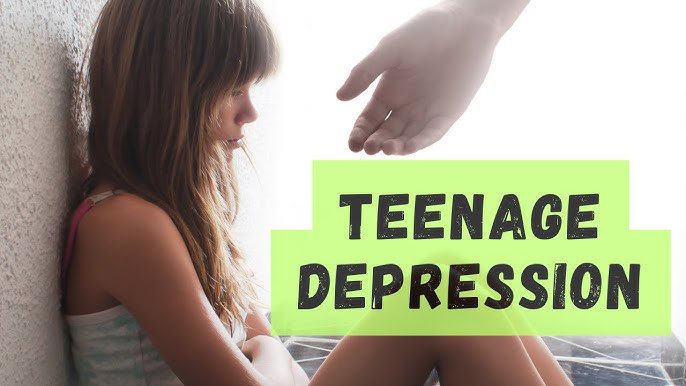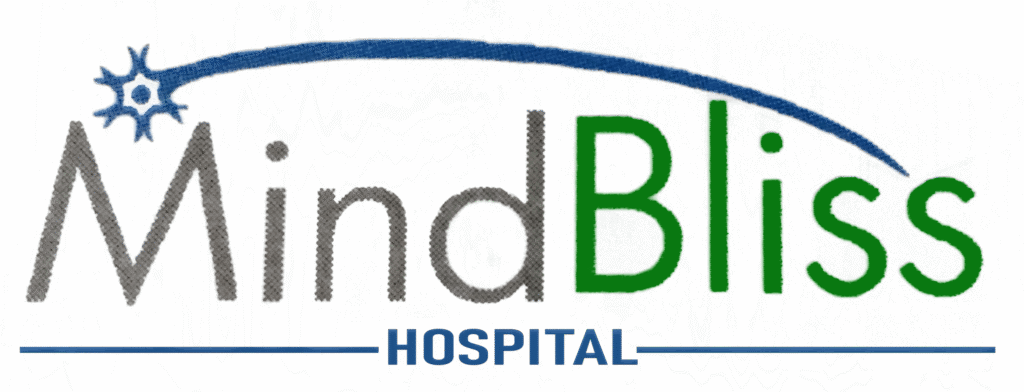
Teen vs. Adult Depression: What’s the Difference?
Difference in Teenage and Adult Depression – Mindbliss Hospital
Depression doesn’t discriminate. It affects people across all age groups, from teenagers struggling with identity and academic pressure to adults juggling responsibilities and life transitions. However, while depression may appear in both teens and adults, its symptoms, causes, and treatments can vary significantly.
Understanding the difference between teenage depression and adult depression is crucial for accurate diagnosis, timely intervention, and proper mental health care. At Mindbliss Hospital, we aim to provide clarity, support, and advanced treatment for people of all ages suffering from depression.
What is Depression?

Depression is a serious mental health disorder that affects how a person feels, thinks, and acts. It is more than just a low mood or temporary sadness — it is a long-term condition that impacts day-to-day functioning.
Common symptoms include:
- Persistent sadness
- Loss of interest in activities
- Fatigue
- Changes in appetite or sleep
- Difficulty concentrating
- Feelings of guilt or worthlessness
- Suicidal thoughts or behavior
While these symptoms can affect people of any age, their intensity, duration, and context differ between adolescents and adults.
Teenage Depression: A Growing Concern

What is Teenage Depression?
Teenage depression refers to a mental health condition in adolescents (typically ages 13–19) that affects their mood, behavior, and social functioning. It is often linked to hormonal changes, brain development, peer pressure, identity struggles, and academic stress.
Common Symptoms of Teenage Depression
Teen depression may not always present in the same way as adult depression. Look out for:
- Irritability rather than sadness
- Withdrawal from family and friends
- Poor academic performance
- Substance abuse
- Complaints of unexplained physical aches
- Defiance or rebellious behavior
- Self-harm or suicidal ideation
Causes of Teenage Depression
- Peer Pressure and Bullying: Teens face immense social pressure to fit in, which can affect self-esteem and mental health.
- Academic Stress: Exams, grades, and expectations from parents can overwhelm students.
- Identity Confusion: Teens are in the process of forming their identity, and this period can lead to emotional turmoil.
- Social Media Influence: Constant exposure to unrealistic standards on social platforms can worsen depression.
- Family Issues: Conflict, divorce, or emotional neglect at home are major triggers.
Adult Depression: Understanding the Challenges

What is Adult Depression?
Adult depression refers to a persistent depressive disorder seen in people typically above 25 years old. Adults may experience depression due to financial struggles, work-life imbalance, relationship issues, health problems, or feelings of unfulfillment.
Common Symptoms of Adult Depression
While similar to those in teens, adult symptoms are often more internalized and long-term:
- Deep sadness and hopelessness
- Insomnia or excessive sleep
- Loss of interest in work or family life
- Fatigue and low energy
- Physical symptoms like headaches or digestive issues
- Feelings of failure, guilt, or worthlessness
- Suicidal thoughts
Causes of Adult Depression
- Workplace Stress: Long hours, burnout, job insecurity, and toxic work environments play a role.
- Financial Pressure: Debt, bills, and life expenses weigh heavily.
- Relationship Problems: Divorce, loneliness, or marital stress contribute to emotional strain.
- Health Issues: Chronic illnesses like diabetes, cancer, or hormonal imbalances can lead to depression.
- Life Transitions: Losing a loved one, parenting responsibilities, or aging parents can trigger depression.
Key Differences Between Teenage and Adult Depression
| Aspect | Teenage Depression | Adult Depression |
| Primary Emotion | Irritability | Sadness |
| Triggers | Peer pressure, school, social media | Job stress, finances, relationships |
| Behavioral Symptoms | Rebellion, skipping school, substance use | Social withdrawal, fatigue, low productivity |
| Expression of Symptoms | Externalized (acting out) | Internalized (rumination, withdrawal) |
| Diagnosis Challenges | Misunderstood as “teen moodiness” | Often downplayed as stress or burnout |
| Help-Seeking Behavior | Reluctant or dependent on parents | Avoidant due to stigma or time constraints |
| Treatment Approach | Therapy with family involvement, school support | Individual therapy, medication, lifestyle changes |
Why It’s Important to Recognize These Differences
Failing to understand the unique symptoms of teenage depression and adult depression can lead to:
- Misdiagnosis
- Delayed treatment
- Worsening of the condition
- Increased risk of suicide
Timely identification ensures effective treatment and better mental health outcomes. At Mindbliss Hospital, our psychiatric specialists offer age-appropriate diagnosis and therapies that consider the psychological and social background of the patient.
Warning Signs You Shouldn’t Ignore
| Teenage Depression | Adult Depression |
| Sudden drop in academic performance | Chronic fatigue and procrastination |
| Avoidance of school or social activities | Decline in job performance |
| Angry outbursts or unexplained aggression | Emotional numbness or detachment |
| Risky behaviors (e.g., drug use, self-harm) | Disinterest in family or previously enjoyed hobbies |
In Teens
- Sudden drop in grades
- Avoidance of school or social activities
- Angry outbursts or aggression
- Risky behaviors (e.g., drug use, self-harm)
In Adults
- Chronic fatigue and procrastination
- Decline in job performance
- Emotional numbness
- Disinterest in family or previously enjoyed hobbies
If you or your loved one experiences these signs, it’s crucial to seek professional help immediately.
The Role of Family, Friends, and Society

Support from loved ones is a vital part of depression treatment.
- For Teens: Parents should foster open communication, avoid judgment, and monitor digital activity. Schools must promote mental health awareness and provide counselors.
- For Adults: Partners, colleagues, and friends should be attentive to changes in behavior and encourage seeking help without stigma.
At Mindbliss Hospital, we also offer family counseling and education programs to help caregivers support their loved ones effectively.
Treatment Options at Mindbliss Hospital

For Teenage Depression:
- Adolescent Psychiatry Consultations
- Cognitive Behavioral Therapy (CBT)
- Art and Expressive Therapy
- Group Therapy with Peers
- School Collaboration Programs
- Family Counseling Sessions
For Adult Depression:
- Individual Psychotherapy
- Medication (Antidepressants)
- Stress Management Workshops
- Lifestyle Counseling (Diet, Exercise, Sleep)
- Mindfulness and Meditation
- Rehabilitation Support for Severe Depression
We use evidence-based treatment plans tailored to the patient’s age, condition severity, and personal needs. Our multidisciplinary team includes psychiatrists, psychologists, counselors, and social workers for holistic care.
Preventive Strategies for Depression
Though not all cases are preventable, certain actions can reduce the risk of developing depression:
For Teens:
- Limit screen time and encourage outdoor activities
- Promote open conversations about emotions
- Build a routine with sleep, study, and play balance
- Encourage self-expression through art, sports, or music
For Adults:
- Maintain work-life balance
- Prioritize sleep and physical activity
- Seek support instead of bottling up emotions
- Engage in hobbies and community events
Remember, early intervention is the best prevention. If signs of depression appear, do not delay seeking help.
Conclusion:
While teenage depression and adult depression may stem from different causes and present differently, both deserve equal attention and care. No age group is immune, and every case matters.
At Mindbliss Hospital, we are committed to helping individuals of all ages reclaim their lives from depression. With customized treatment plans, compassionate care, and a stigma-free environment, we aim to be your trusted partner on the path to mental well-being.










